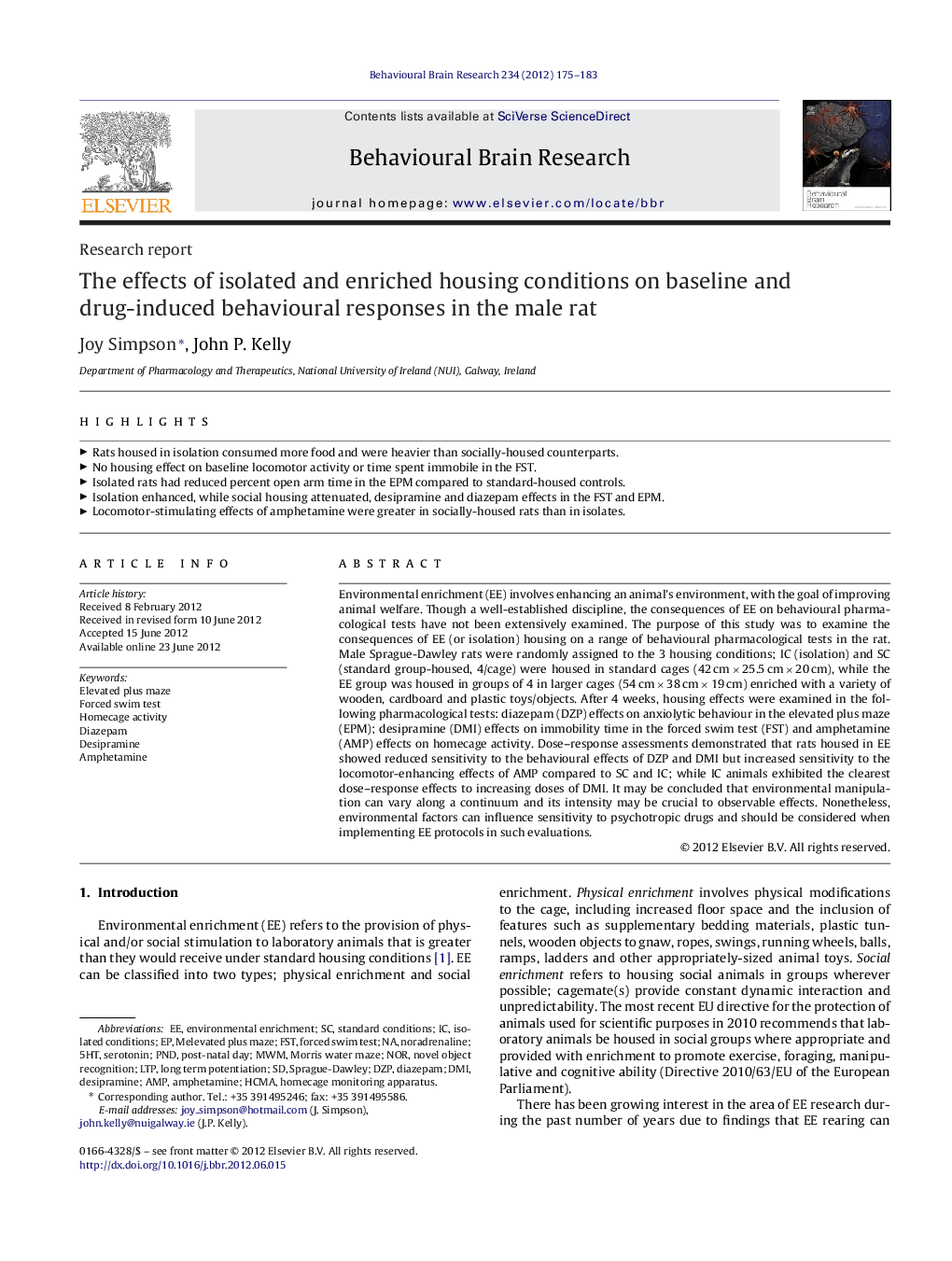| کد مقاله | کد نشریه | سال انتشار | مقاله انگلیسی | نسخه تمام متن |
|---|---|---|---|---|
| 4312945 | 1289978 | 2012 | 9 صفحه PDF | دانلود رایگان |

Environmental enrichment (EE) involves enhancing an animal's environment, with the goal of improving animal welfare. Though a well-established discipline, the consequences of EE on behavioural pharmacological tests have not been extensively examined. The purpose of this study was to examine the consequences of EE (or isolation) housing on a range of behavioural pharmacological tests in the rat. Male Sprague-Dawley rats were randomly assigned to the 3 housing conditions; IC (isolation) and SC (standard group-housed, 4/cage) were housed in standard cages (42 cm × 25.5 cm × 20 cm), while the EE group was housed in groups of 4 in larger cages (54 cm × 38 cm × 19 cm) enriched with a variety of wooden, cardboard and plastic toys/objects. After 4 weeks, housing effects were examined in the following pharmacological tests: diazepam (DZP) effects on anxiolytic behaviour in the elevated plus maze (EPM); desipramine (DMI) effects on immobility time in the forced swim test (FST) and amphetamine (AMP) effects on homecage activity. Dose–response assessments demonstrated that rats housed in EE showed reduced sensitivity to the behavioural effects of DZP and DMI but increased sensitivity to the locomotor-enhancing effects of AMP compared to SC and IC; while IC animals exhibited the clearest dose–response effects to increasing doses of DMI. It may be concluded that environmental manipulation can vary along a continuum and its intensity may be crucial to observable effects. Nonetheless, environmental factors can influence sensitivity to psychotropic drugs and should be considered when implementing EE protocols in such evaluations.
► Rats housed in isolation consumed more food and were heavier than socially-housed counterparts.
► No housing effect on baseline locomotor activity or time spent immobile in the FST.
► Isolated rats had reduced percent open arm time in the EPM compared to standard-housed controls.
► Isolation enhanced, while social housing attenuated, desipramine and diazepam effects in the FST and EPM.
► Locomotor-stimulating effects of amphetamine were greater in socially-housed rats than in isolates.
Journal: Behavioural Brain Research - Volume 234, Issue 2, 1 October 2012, Pages 175–183